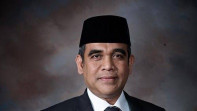VINANSIA.COM - The free nutritious meal program proposed by President-elect Prabowo Subianto, as analyzed by the Institute for Development of Economics and Finance (Indef), presents a compelling case for boosting Indonesia's economy while tackling social challenges like child malnutrition and stunting.
Indef estimates that the program could contribute up to IDR 4,510 trillion to the country's GDP by 2025. This projection is based on a budget of IDR 71 trillion, aiming to reach 19.47 million beneficiaries, including students, pregnant or breastfeeding women, and young children at risk of stunting.
According to Indef's Executive Director Esther Sri Astuti, the program offers a "multiplier effect" on economic growth. Beyond addressing nutrition, it stimulates increased spending in related sectors. For instance, an additional IDR 1 trillion allocated to education could drive a substantial GDP increase of IDR 63.52 trillion.
As the program scales up in subsequent years, Indef forecasts contributions to the GDP could reach IDR 6,967 trillion by 2026 and surge to IDR 18,958 trillion by 2029 if the coverage is expanded to around 82.9 million people with a budget of approximately IDR 298 trillion.
However, Indef also highlights the challenges and risks involved. For the program to achieve its ambitious economic and social targets, robust planning and execution are essential. The initiative's large-scale nature necessitates careful budget management and transparent implementation, especially in reaching remote and underserved communities. There is a risk that without adequate oversight, the funds may not be used effectively, potentially diminishing the intended economic impact.
Moreover, while the economic projections are promising, Indef emphasizes that long-term success will hinge on integrating the program with local food systems. Strengthening connections with local agriculture could enhance the program's sustainability and resilience, reduce dependence on imported goods, and lower overall costs. This integration could also create a more lasting economic benefit by supporting local farmers and food producers.
In addition to economic growth, Indef points out the job creation potential, with an estimated 820,000 new positions required to support the program's rollout. These roles could provide a significant boost to employment, but ensuring that the jobs created are sustainable and contribute to long-term economic resilience will be key.
In conclusion, Indef’s analysis underscores that while the free nutritious meal program holds great promise for Indonesia's economic and social landscape, it must be implemented with precision and an eye towards sustainability.
The program could serve as a transformative initiative, potentially setting a new standard for addressing systemic challenges through strategic public policy, provided it overcomes the hurdles associated with large-scale government projects.

.png)
.png)
.png)



.png)


